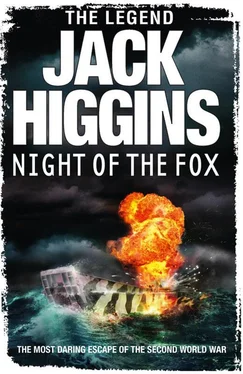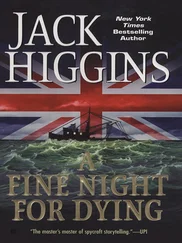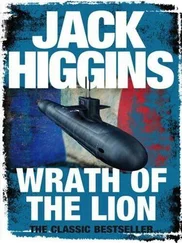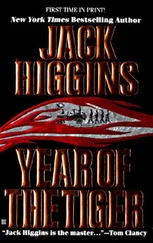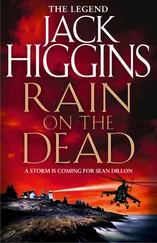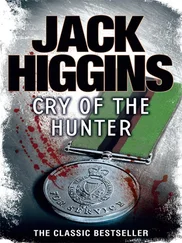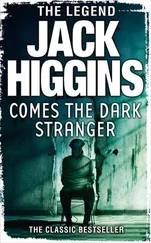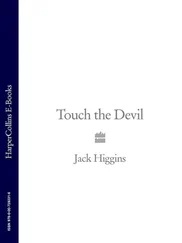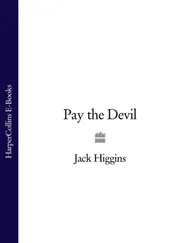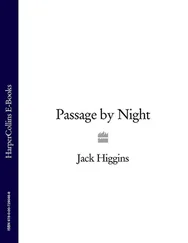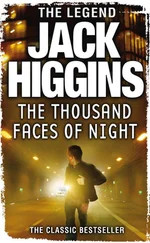‘And the even more extraordinary circumstance of his last rites,’ I said. ‘After all, Canon, it isn’t often you get to bury a man forty years after his death.’
The bungalow was at the other end of St Brelade’s Bay, close to L’Horizon Hotel where I was staying. It was small and unpretentious, but the living room was surprisingly large, comfortable and cluttered, two walls lined with books. Sliding windows opened to a terrace and a small garden, the bay beyond. The tide was rushing in, the wind lifting the sea into whitecaps, and rain rattled against the window.
My host came in from the kitchen and put a tray on a small table by the fire. ‘I hope you don’t mind tea.’
‘Tea will be fine.’
‘My wife was the coffee drinker in the family, but she died three years ago. I could never abide the stuff myself.’
He filled my cup and pushed it toward me as I sat down on the other side of the table from him. The silence hung between us. He raised his cup and drank very precisely, waiting.
‘You’re very comfortable here,’ I said.
‘Yes,’ he said. ‘I do very well. Lonely, of course. The great weakness of all human beings, Professor Stacey, is that we all need somebody.’ He refilled his cup. ‘I spent three years in Jersey as a boy and grew to love the place very much.’
‘That would be easy enough.’ I looked out at the bay. ‘It’s very beautiful.’
‘I returned on holiday on many occasions. When I retired, I was a canon of Winchester Cathedral. Our only son moved to Australia many years ago, so …’ He shrugged. ‘Jersey seemed an obvious choice as my wife had owned this bungalow for many years. A legacy from an uncle.’
‘That must have been convenient.’
‘Yes, especially with the housing laws the way they are here.’ He put down his cup, took out a pipe and started to fill it from a worn leather pouch. ‘So,’ he said briskly. ‘Now you know all about me. What about you and friend Martineau?’
‘Do you know much about him?’
‘I’d never heard of the man until a few days ago when my good friend, Dr Drayton, came to see me, explained the circumstances in which the body had been recovered and told me it was being shipped from London for burial here.’
‘You’re aware of the manner of his death?’
‘In a plane crash in 1945.’
‘January 1945, to be precise. The RAF had a unit called the Enemy Aircraft Flight during the Second World War. They operated captured German planes to evaluate performance and so on.’
‘I see.’
‘Harry Martineau worked for the Ministry of Economic Warfare. In January 1945, he went missing when traveling as an observer in an Arado 96, a German two-seater training plane being operated by the Enemy Aircraft Flight. It was always believed to have gone down in the sea.’
‘And?’
‘Two weeks ago it was found during excavations in an Essex marsh. Work on the building site was halted while an RAF unit recovered what was left.’
‘And Martineau and the pilot were still inside?’
‘What was left of them. For some reason the authorities kept a low profile on the affair. News didn’t filter through to me until last weekend. I caught the first plane out. Arrived in London on Monday morning.’
He nodded. ‘You say you’ve been working on a biography of him. What makes him so special? As I told you, I’d never even heard his name before.’
‘Nor had the general public,’ I said. ‘But in the thirties, in academic circles …’ I shrugged. ‘Bertrand Russell considered him one of the most brilliant and innovative minds in his field.’
‘Which was?’
‘Moral philosophy.’
‘An interesting study,’ the canon said.
‘For a fascinating man. He was born in Boston. His father was in shipping. Wealthy, but not outrageously so. His mother, although born in New York, was of German parentage. Her father taught for some years at Columbia then returned to Germany in 1925 as professor of surgery at Dresden University.’ I got up and walked to the window, thinking about it as I peered out. ‘Martineau went to Harvard, did a doctorate at Heidelberg, was a Rhodes scholar at Oxford, a Fellow of Trinity College and Croxley Professor of Moral Philosophy by the age of thirty-eight.’
‘A remarkable achievement,’ Cullen said.
I turned. ‘But you don’t understand. Here was a man who was questioning everything. Turning his whole field upside down. And then the Second World War broke out and the rest is silence. Until now, that is.’
‘Silence?’
‘Oh, he left Oxford, we know that. Worked for the Ministry of Defence and then the Ministry of Economic Warfare, as I told you. Many academics did that. But the tragedy was that he seems to have stopped working altogether in his chosen field. No more papers and the book he’d been writing for years was left unfinished. We’ve got the manuscript at Harvard. Not a line written after September nineteen thirty-nine.’
‘How very strange.’
I went back and sat down. ‘We have all his papers in the Harvard Library. What really intrigued me on going through them was a personal thing.’
‘And what was that?’
‘When I finished high school at eighteen, instead of going straight to Harvard I joined the Marines. Did a year in Vietnam until a bullet in the left kneecap sent me home for good. Martineau did the same sort of thing. Joined the American Expeditionary Force in the last few months of the First World War, underage, I might say, and served as an infantry private in the trenches in Flanders. I was fascinated by the fact that in turning from what we’d gone through, we’d both sought another answer in the same way.’
‘From the hell of war to the cool recesses of the mind.’ Canon Cullen knocked out his pipe in the hearth. ‘I can’t remember who said that. Some war poet or other.’
‘God save me from those,’ I said. ‘Nam cost me a permanently stiff left leg, three years in the hands of psychiatrists and a failed marriage.’
The clock on the mantelpiece struck twelve. Cullen got up, moved to the sideboard and poured whisky from a cut glass decanter into two glasses. He brought them back and handed me one. ‘I was in Burma during the war myself, which was bad enough.’ He sipped a little whisky and put down his glass on the hearth. ‘And so, Professor, what about the rest?’
‘The rest?’
‘Priests are supposed to be ingenuous souls who know nothing of the reality of life,’ he said in that dry, precise voice. ‘Rubbish, of course. Our business is confession, human pain, misery. I know people, Professor, after fifty-two years as an ordained priest, and one learns to know when they are not telling you everything.’ He put a match to his pipe and puffed away. ‘Which applies to you, my friend, unless I’m very much mistaken.’
I took a deep breath. ‘He was in uniform when they found him.’
He frowned. ‘But you said he was working for the Ministry of Economic Warfare.’
‘German Luftwaffe uniform,’ I said. ‘Both he and the pilot.’
‘Are you certain?’
‘I have a friend from the Vietnam days in the Marines called Tony Bianco. He’s with the CIA at our embassy in London. They get to know things, these people. I had problems with the Ministry of Defence the other day. They were giving very little away about Martineau and that plane.’
‘Your friend checked up for you?’
‘And found out something else. The newspaper report about that Arado being from the Enemy Aircraft Flight. That’s suspect, too.’
‘Why?’
‘Because they always carried RAF rondels. And according to Bianco’s informant, this one still had Luftwaffe markings.’
‘And you say you couldn’t get any more information from official sources?’
Читать дальше
